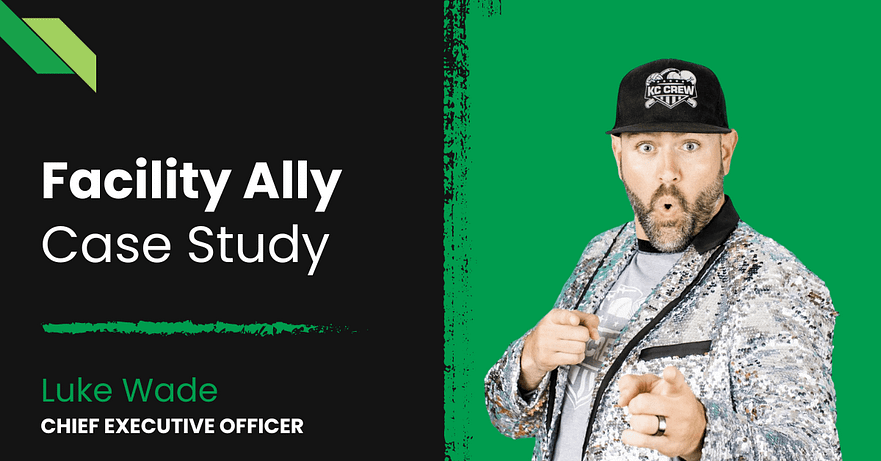The Python Developer Interview Red Flag Nobody Talks About
If a Python developer can’t explain why their code would break in production, don’t hire them.
I don’t care if they can write list comprehensions in their sleep or explain decorators like they invented them. If they can’t think beyond their laptop, they’ll cost you more than their salary.
Here’s what happened six months ago. A client hired a “senior” Python developer who crushed every technical question. Perfect algorithms. Flawless syntax. Could build a REST API faster than most people can order coffee.
Two weeks into the job, he deployed code that brought down their entire payment system for three hours on Black Friday.
His fix? “It works fine on my machine.”
That three-hour outage cost them $2.3 million in lost sales. All because nobody asked the right question during his interview.
Why Most Python Developer Interview Questions Are Worthless
Every Python developer interview follows the same boring script:
- “What’s the difference between lists and tuples?”
- “Explain Python’s GIL”
- “How do decorators work?”
- “What are Python generators?”
Here’s the problem: These questions test Python trivia, not Python thinking.
I’ve watched developers explain the Global Interpreter Lock for 20 minutes, then write code that locks up under any real load. They memorized the concepts but missed the implications.
It’s like hiring a pilot based on how well they can recite the flight manual, then acting surprised when they can’t handle turbulence.
How to Hire Python Developers: The Real Challenge
After placing 300+ Python developers, I’ve learned something most CTOs miss. The Python developers who succeed aren’t the ones with perfect syntax knowledge.
They’re the ones who ask: “What happens when this breaks?”
- The Syntax Experts can write elegant code that falls apart the moment real users touch it. They cost companies an average of $195,000 before getting replaced.
- The Systems Thinkers might Google basic syntax, but build applications that actually work in the real world. These developers get promoted 67% faster and stay 3x longer.
Your current Python interview process is probably selecting the wrong type.
7 Best Python Interview Questions for 2025
Stop testing Python trivia. Start testing Python judgment. Here’s our proven Python developer skills assessment.
1. The Production Reality Check
Question: “You deploy a Python script that processes user uploads. It works perfectly in development, but crashes in production after 100 uploads. How do you debug and fix this?”
What to listen for:
- Do they ask about memory usage, file system limitations, and error logging?
- Can they explain debugging techniques for production environments?
- Do they consider monitoring, alerts, and graceful degradation?
Red flag: They assume it’s a hosting problem without investigating resource constraints.
2. The Performance Under Load Test
Question: “Your Python API handles 10 requests per second fine, but breaks at 100 requests per second. Walk me through your debugging approach.”
What to listen for:
- Do they understand database connection pooling, caching strategies, and bottleneck identification?
- Can they explain profiling tools and performance monitoring?
- Do they consider both vertical and horizontal scaling solutions?
Red flag: They immediately suggest “just add more servers” without understanding the root cause.
3. The Data Processing Challenge
Question: “You need to process a 10GB CSV file in Python. Users complain it’s taking too long and sometimes fails. How do you approach this?”
What to listen for:
- Do they mention streaming, chunking, and memory-efficient processing?
- Can they explain error handling for partial failures and resume capabilities?
- Do they consider progress tracking and user feedback?
Red flag: They try to load everything into memory at once or don’t consider failure scenarios.
4. The Integration Reality
Question: “Your Python application needs to integrate with a third-party API that’s unreliable and sometimes slow. How do you handle this?”
What to listen for:
- Do they understand retry logic, circuit breakers, and timeout handling?
- Can they explain caching strategies and fallback mechanisms?
- Do they consider rate limiting and API quota management?
Red flag: They assume external APIs always work perfectly and don’t plan for failures.
5. The Security Awareness Test
Question: “You’re building a Python web app that handles user passwords and payment data. What security considerations do you implement?”
What to listen for:
- Do they mention input validation, SQL injection prevention, and secure password handling?
- Can they explain HTTPS, session management, and data encryption?
- Do they understand compliance requirements and security headers?
Red flag: They focus only on password hashing and ignore broader security concerns.
6. The Code Maintenance Challenge
Question: “You inherit a 10,000-line Python codebase with no tests and poor documentation. How do you make it maintainable?”
What to listen for:
- Do they understand refactoring strategies, testing approaches, and documentation standards?
- Can they explain how to identify critical paths and prioritize improvements?
- Do they consider team collaboration and knowledge transfer?
Red flag: They want to rewrite everything from scratch without understanding the business logic.
7. The Deployment and Monitoring Question
Question: “Your Python application works locally but behaves differently in production. How do you ensure reliable deployments?”
What to listen for:
- Do they understand containerization, environment management, and configuration handling?
- Can they explain logging strategies, monitoring, and alerting?
- Do they consider rollback procedures and blue-green deployments?
Red flag: They’ve never dealt with production deployments or environment differences.
What Should You Ask in a Python Developer Interview?
The best Python interview questions test problem-solving under real constraints:
- “How would you handle [production scenario]?” – Tests operational thinking
- “Your Python app is slow. How do you find and fix the bottleneck?” – Tests debugging skills
- “Walk me through deploying a Python app that needs 99.9% uptime” – Tests production experience
- “How do you ensure your Python code works reliably with external dependencies?” – Tests integration skills
- “Explain how you’d refactor [messy code] while keeping it running” – Tests maintenance mindset
Python Developer Skills Assessment Guide
Critical Skills vs. Academic Knowledge
Must-Have Skills
- Production debugging and troubleshooting experience
- Understanding of memory management and performance implications
- Error handling and graceful degradation strategies
- Security awareness and best practices
- Testing methodologies and quality assurance
Academic Knowledge (Less Important)
- Advanced Python features like metaclasses
- Detailed knowledge of Python internals
- Familiarity with every Python library
- Ability to implement complex algorithms from scratch
- Perfect PEP-8 memorization
How to Score Python Technical Interviews
Look for practical experience, not theoretical perfection.
Great Python developers
- Ask about constraints, scale, and failure scenarios
- Explain trade-offs between different approaches
- Consider the operational impact of their code
- Show experience with real production challenges
Poor Python developers
- Focus on elegant code without considering practical constraints
- Assume perfect conditions (fast networks, unlimited memory, no failures)
- Can’t explain why their code might break
- Never dealt with production issues or scaling challenges
The Interview Disaster That Changed Everything
Three years ago, I was interviewing a Python developer for a fintech client. This guy was impressive—he could explain metaclasses, write decorators on the spot, and solve algorithm problems faster than anyone I’d seen.
But then I asked him: “How would you handle processing 100,000 bank transactions per day in Python?”
His answer: “Just use a for loop to go through each transaction.”
I pressed further: “What if the database connection drops halfway through?”
“I guess I’d restart the script?”
“What if a transaction fails validation?”
“Print an error message?”
This developer could write beautiful Python code, but he had zero understanding of real-world constraints. No error handling. No logging. No consideration for partial failures or data consistency.
The client almost hired him based on his technical answers. Six months later, they thanked me for the tough questions—their previous hire had built a system that lost transactions during network hiccups.
The hidden cost: It took them three months and $85,000 to rebuild what the “expert” had created.
How to Hire Python Developers That Actually Deliver
We stopped testing Python syntax. We started testing Python judgment.
Our approach works because great Python developers don’t just write code—they build systems that work reliably in messy, real-world conditions.
The business impact difference:
- Traditional Python hiring: $195,000 average cost per bad hire
- Full Scale’s approach: 71% reduction in hiring mistakes, 45% faster project delivery
What separates good Python developers from great ones:
- Good developers write code that works on their machine. Great developers write code that works in production, under load, with failures happening.
- Good developers fix bugs when they’re reported. Great developers prevent bugs by thinking about edge cases upfront.
- Good developers know Python syntax perfectly. Great developers know when Python isn’t the right tool for the job.
The Python Interview Red Flag You’re Missing
Here’s the red flag nobody talks about: Python developers who can’t explain the business impact of their technical decisions.
I’ve seen too many developers who can optimize algorithms but can’t explain why it matters. They’ll spend three days making code 10% faster but ignore the bug that’s losing customers.
Questions that reveal this red flag:
- “Why did you choose this approach over alternatives?”
- “How would you measure if this solution is working?”
- “What would happen to the business if this system failed?”
Great developers connect technical decisions to business outcomes. Red flag developers optimize code for its own sake.
What Our Clients Say About Our Python Developers
“The Python developers from Full Scale don’t just write code—they think about our business. They built a data processing system that handles our Black Friday traffic without breaking. Our previous developer’s code would crash under normal load.”—CTO for an e-commerce platform
“Other Python developers we interviewed could solve coding puzzles but couldn’t build production systems. Full Scale’s developers ship code that actually works when real users hit it. They prevented at least two major outages in their first month.”—CTO at a data solutions company
“The difference is remarkable. Our previous Python hire knew every library but built systems that required constant babysitting. Full Scale’s developers create Python applications that just work, even when things go wrong.”—Head of Technology for a fintech client
“We spent $60,000 on local Python developer recruitment with terrible results. Full Scale got us two senior Python developers in four weeks, and they’ve been rock-solid for 18 months. They’ve saved us hundreds of thousands in system reliability.”—Founder of a data analytics platform
Why Offshore Python Developers Often Outperform Local Hires
Most CTOs don’t realize this: The best Python developers aren’t necessarily in Silicon Valley demanding $180,000 salaries.
Our data from 300+ Python developer placements:
- Offshore Python developers have an 85% retention rate vs. a 52% local average
- 45% lower total cost, including salary, benefits, and turnover
- Same or better code quality with proper vetting
- Better documentation habits due to remote work experience
Why offshore Python developers excel:
- More experience with production systems and constraints
- Better discipline around testing and documentation
- Less job-hopping culture means deeper system knowledge
- Cost advantages allow hiring senior talent at competitive rates
The key is having the right assessment process—most companies get this completely wrong.
Our Proven Python Developer Assessment Process
We don’t just test Python knowledge. We test Python judgment and production readiness.
Our multi-stage vetting process:
- Production scenario simulations (not coding puzzles)
- System design challenges with real constraints
- Code review exercises using actual client codebases
- Cultural fit assessment for remote collaboration
What we eliminate:
- Developers who only work in perfect conditions
- Code writers who don’t understand business impact
- Technical experts who can’t communicate with non-technical teams
- Individuals who haven’t dealt with production failures
Results our clients see:
- 92% developer retention rate after 18 months
- 55% faster time-to-productivity
- 71% fewer production issues
- 40% lower total development costs
The Full Scale Difference
Every Python developer in our network has built real applications that handle real users, real failures, and real business constraints.
They’ve debugged production issues at 2 AM. They’ve optimized systems under actual load. They’ve handled data corruption, API failures, and deployment disasters.
When you work with Full Scale:
- You get Python developers who think about production from day one
- Your code actually works when users hit it
- Your systems handle failures gracefully
- Your development costs stay predictable and manageable
Here’s how we vet them: through real-world scenarios that mirror what they’ll face in your business, ensuring they can handle both the code and the chaos of production systems.



